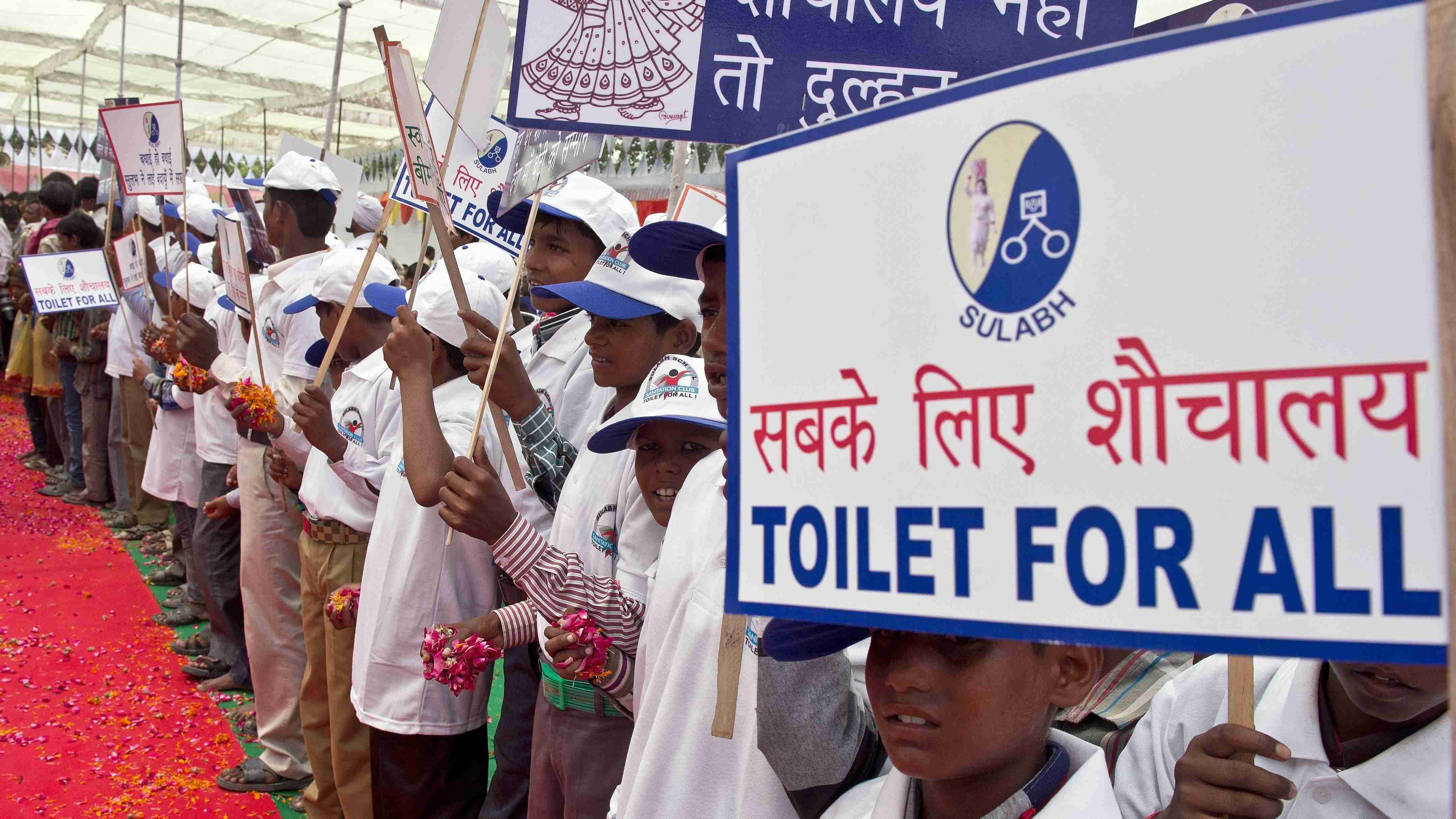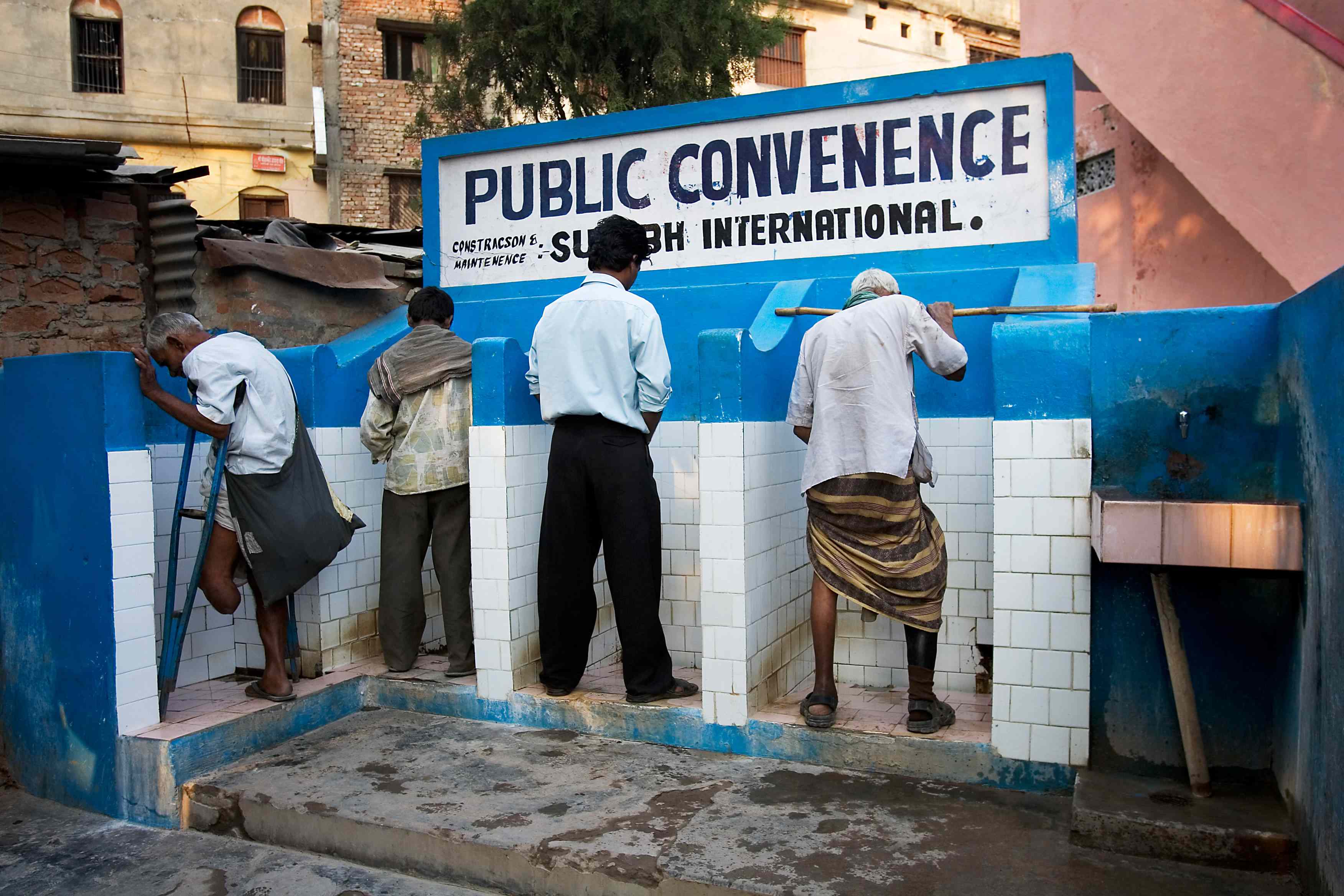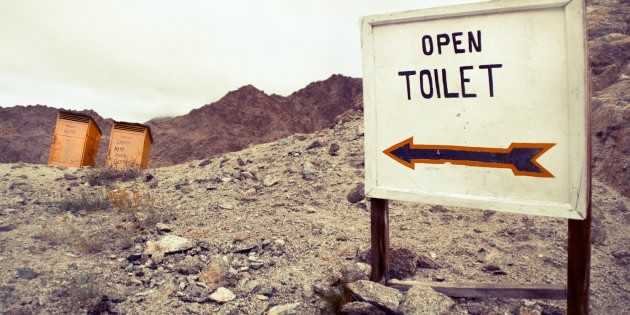
Culture
22:24, 14-Aug-2017
India cleans up with indoor toilet revolution
CGTN

Indian Prime Minister Narendra Modi's pet project - Swachh Bharat Mission or Clean India Mission launched in 2014 - is forging ahead to eliminate public defecation by constructing toilets in every home by 2019.
A significant proportion of the country's population still does not have access to proper sanitation. Some households, especially in the countryside, are still averse to having indoor toilets.
This is due to cultural and religious attitudes linked to toilets in homes which have a temple inside the courtyard.
In order to keep their homes clean, people often relieve themselves in open fields.
According to available data, around 48 percent of people in urban areas don't have access to a toilet at home, while that figure can be as high as 60 percent in rural areas.

Public toilet in India. /Photo via theconversation.com
Public toilet in India. /Photo via theconversation.com
Modi has also called on politicians and corporations to build toilets to end open defecation and promote good health.
Officials revealed that various ministries have been roped in to chalk out the modalities to ensure effective implementation of the program.
The Ministry for Drinking Water and Sanitization has been working in tandem with the Ministries of Health and Family Welfare to build support infrastructure like water supply, sewage and waste management to move the project ahead.
The government has also brought in non-governmental organizations for additional resources and manpower. This has ensured that there is support infrastructure to support toilet structures in the long term.
"Open defecation is rife, and remains a major impediment in achieving the millennium development goals. Since the government brought this issue out of the closet and into the public arena, having toilets inside homes and maintaining hygiene is no longer a taboo," said Nandini Vyas, director of a Delhi-based NGO that promotes sanitation and hygiene.
"When we approach villages now, people come out in large numbers to listen to us. They take leadership roles in promoting toilet construction. Since funding has become easier, I think India will soon achieve its goal of ending open defecation," she added.
One important part of the Clean India project is ensuring dignity for women.
To this end, women are made key partners in overseeing constructions of toilets and raising awareness about challenges associated with open defecation like the spread of disease.
According to data from the Ministry of Human Resource Development, close to 10 percent of the 1.1 million schools in India do not have toilet facilities for female students.
As a consequence, girls leave school on average at an earlier age than their male contemporaries.
Lack of toilets in homes also puts women at risk, with data from some NGOs suggesting that women have been raped or killed on their way to relieve themselves in the open.

A sign that shows open toilet in India./Photo via The Huffington Post
A sign that shows open toilet in India./Photo via The Huffington Post
However, things are improving in rural India where access to sanitation has risen by 51 percent.
"Earlier we had to go to open fields at dawn. Sometimes, we had to take a male member of the family along because there were men from opposite village who would tease us. Now we are happy to have toilets inside homes. It makes us feel safe and prevents spread of infections as well," said Rajkumari Saha, a woman living near a village in Greater Noida, around 50 kilometers from Delhi.
By the end of 2016, the government claimed to have constructed nearly 80 toilets in the countryside.
State-owned and public sector firms have been brought on board to construct toilets in schools and to use their corporate social responsibility funding towards the project.
"It will be quite a task to meet the goal of toilets' construction in schools by 2019 and the government will have to rush against the deadline. The quality and long-term maintenance will be other issues," said Suman Baru, an educationalist based in Delhi.
"But even if they are able to make progress towards achieving 75 percent of the set goal, it will be a good boost to education, especially for the girls in the country. It will also help curb child labor, especially manual scavenging and eradicate diseases among children like mental and cognitive stunting and diarrhea, which spread because of unhygienic practices," she added.
(Cover photo via project-syndicate.org)
Source(s): Xinhua News Agency

SITEMAP
Copyright © 2018 CGTN. Beijing ICP prepared NO.16065310-3
Copyright © 2018 CGTN. Beijing ICP prepared NO.16065310-3